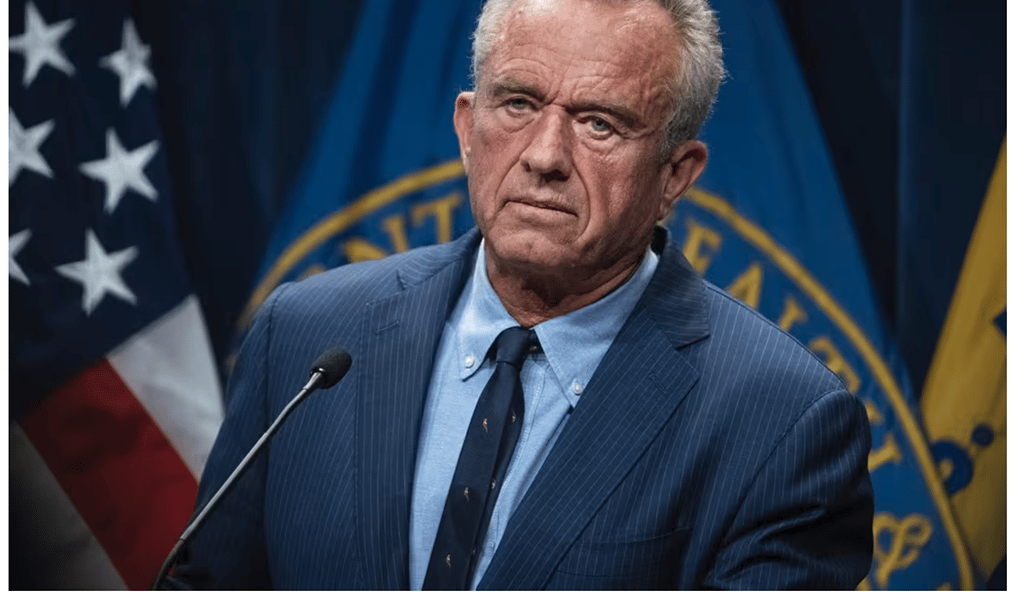RFK Jr.’s Autism Remarks: A Step Backward for Inclusion?
4/19/2025


RFK Jr.’s Autism Remarks: A Step Backward for Inclusion?
On April 16, 2025, Robert F. Kennedy Jr., the U.S. Health and Human Services Secretary, sparked a firestorm with his remarks on autism during a C-SPAN broadcast. Claiming that autistic children will “never pay taxes, hold a job, play baseball, write a poem, go on a date, or use a toilet unassisted,” RFK Jr. painted a bleak, dehumanizing picture that has drawn sharp criticism (
@Acyn, April 16, 2025). For Boncopia readers who care about social values, inclusion, and public health policy, this isn’t just a gaffe—it’s a dangerous step backward that undermines trust in government and harms neurodiverse communities. What does this mean for autism advocacy in 2025, and how can we move toward true inclusion?
In the Remarks and the Backlash, RFK Jr.’s speech was meant to address environmental factors in autism, but his words quickly ignited outrage. X users like@NikosUnity, fired back, stating, “Autistic people pay taxes. Autistic people work. Autistic people fall in love. RFK Jr. just doesn’t see them as human” (April 16, 2025).@SouthernBama called him a “disgrace to the Kennedy name,” pointing out that millions of autistic people lead fulfilling lives (April 16, 2025). The backlash wasn’t just emotional—it was personal. @NavyStrang shared a story of their autistic son, a high school honor student who plays soccer and dreams of becoming an engineer, writing, “My kid proves RFK wrong every day” (April 17, 2025).
The controversy ties into RFK Jr.’s long history of promoting the debunked vaccine-autism link. A 2014 meta-analysis of 1.3 million children found no connection between vaccines and autism (DOI: 10.1016/j.vaccine.2014.04.085), yet RFK Jr. has doubled down, hiring discredited anti-vaccine advocate David Geier to lead a CDC study (Ars Technica, March 26, 2025). For Boncopia readers, this raises red flags about science denial in public health policy—a concern that hits close to home for parents like me, whose daughter with cerebral palsy relies on evidence-based care.
A Blow to Inclusion and Trust
RFK Jr.’s remarks aren’t just factually wrong—they’re harmful. By reducing autistic individuals to a list of perceived deficits, he erases their humanity and perpetuates stereotypes that fuel discrimination. Autistic adults and advocates have long fought for inclusion, with organizations like the Autism Self Advocacy Network emphasizing that autism is a difference, not a tragedy. In 2024, 1 in 36 U.S. children were diagnosed with autism (CDC, 2024), and many grow up to lead vibrant lives—paying taxes, working as engineers, artists, and teachers, and forming loving relationships.
For Boncopia’s audience, this controversy highlights a broader issue: trust in government. RFK Jr.’s role as HHS Secretary means his words carry weight, yet they alienate the very communities he’s meant to serve. This comes at a time when trust in Trump’s administration is already shaky, with immigration mishaps (e.g., the El Salvador deportation case, Reuters, February 4, 2025) and economic uncertainty from tariffs (Reuters, March 10, 2025). X user @EvaristusOdinikaeze called RFK Jr.’s rhetoric “cruel” and “ableist,” arguing it says more about his worldview than about autistic people (April 16, 2025). When leaders dismiss entire groups, how can families—like mine, navigating cerebral palsy—feel safe relying on public health systems?
The Path Forward: Advocacy and Education
To move toward inclusion, we need better representation and policies grounded in science. Autistic voices must be at the table—something RFK Jr. ignored. Programs like Empower Kick Studio, where I’ve been helping my friend build a Taekwondo community, show how inclusive environments can empower all kids, including those with disabilities. Education is also key: schools and media must teach that neurodiversity is a strength, not a burden. A 2024 study by the National Autism Association found that inclusive education improves social outcomes for autistic students by 30%—proof that acceptance works.
Government leaders must do better. RFK Jr. should issue a public apology and commit to evidence-based policies, starting with scrapping the Geier-led study (Ars Technica, March 26, 2025). As of April 19, 2025, the backlash may have escalated, with advocacy groups potentially organizing protests or demanding his resignation under hashtags like #RFKJrResign. Political figures like
@SenWarren might have called for accountability, amplifying the pressure. For Boncopia readers, this is a call to action: advocate for inclusion in your communities, whether through supporting neurodiverse programs or holding leaders accountable.
A Wake-Up Call for 2025
RFK Jr.’s remarks are a stark reminder of the work still needed for true inclusion. Autistic individuals aren’t broken—they’re part of our shared humanity, deserving of respect and opportunity. As X user @TheOptimizedPath put it, “Calling kids burdens isn’t policy—it’s dehumanizing trash” (April 16, 2025). For parents like me, who see the daily strength of our kids with disabilities, this hits hard. The growing calls for accountability as of April 19, 2025, signal a pivotal moment: will we demand better from our leaders, or let harmful stereotypes persist?
Thought-Provoking Questions:
How have RFK Jr.’s remarks affected your view of public health leadership?
What steps can we take to promote inclusion for autistic and neurodiverse individuals in 2025?
How can education combat harmful stereotypes about autism in your community?
Tags: Autism, RFK Jr., Inclusion, Public Health, Neurodiversity
hello@boncopia.com
+13286036419
© 2025. All rights reserved.